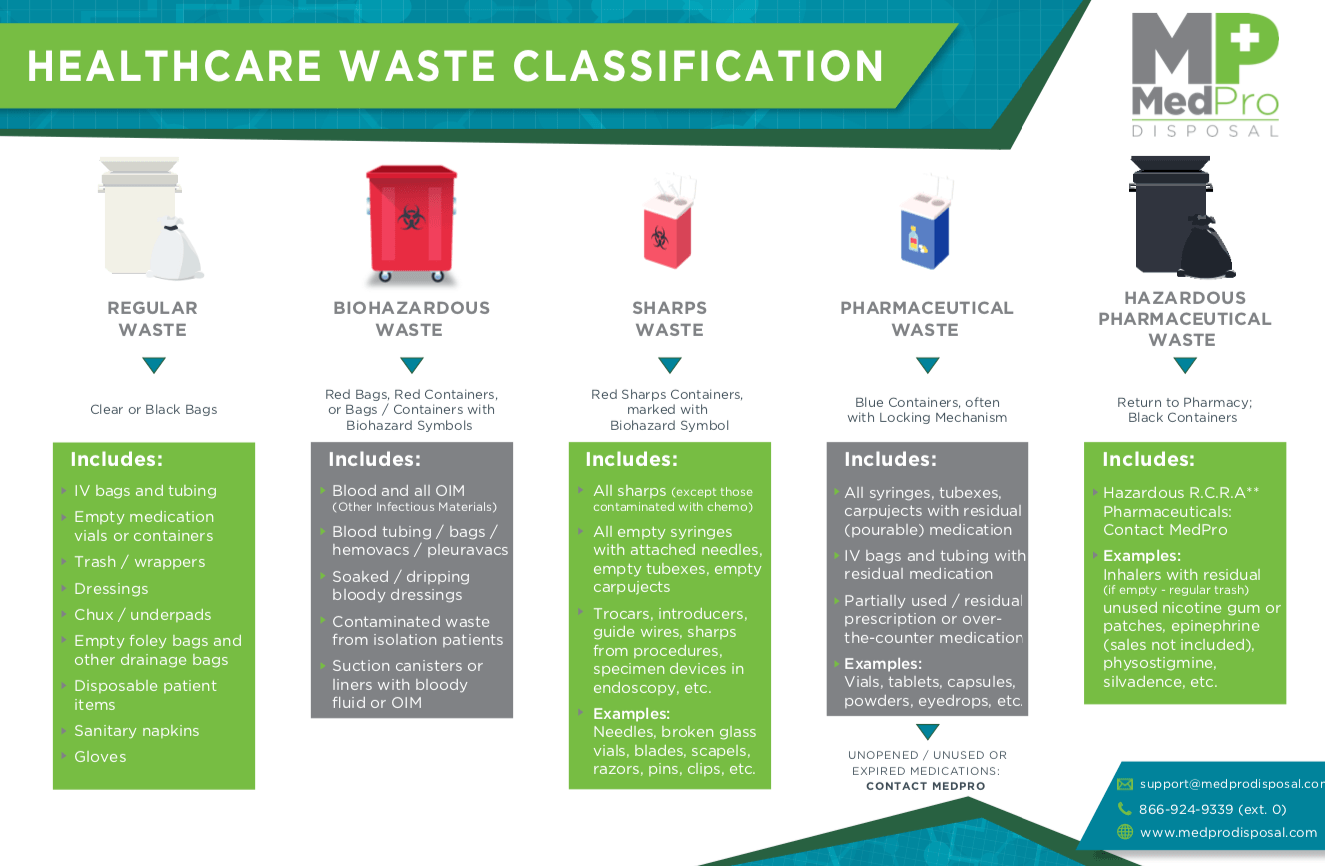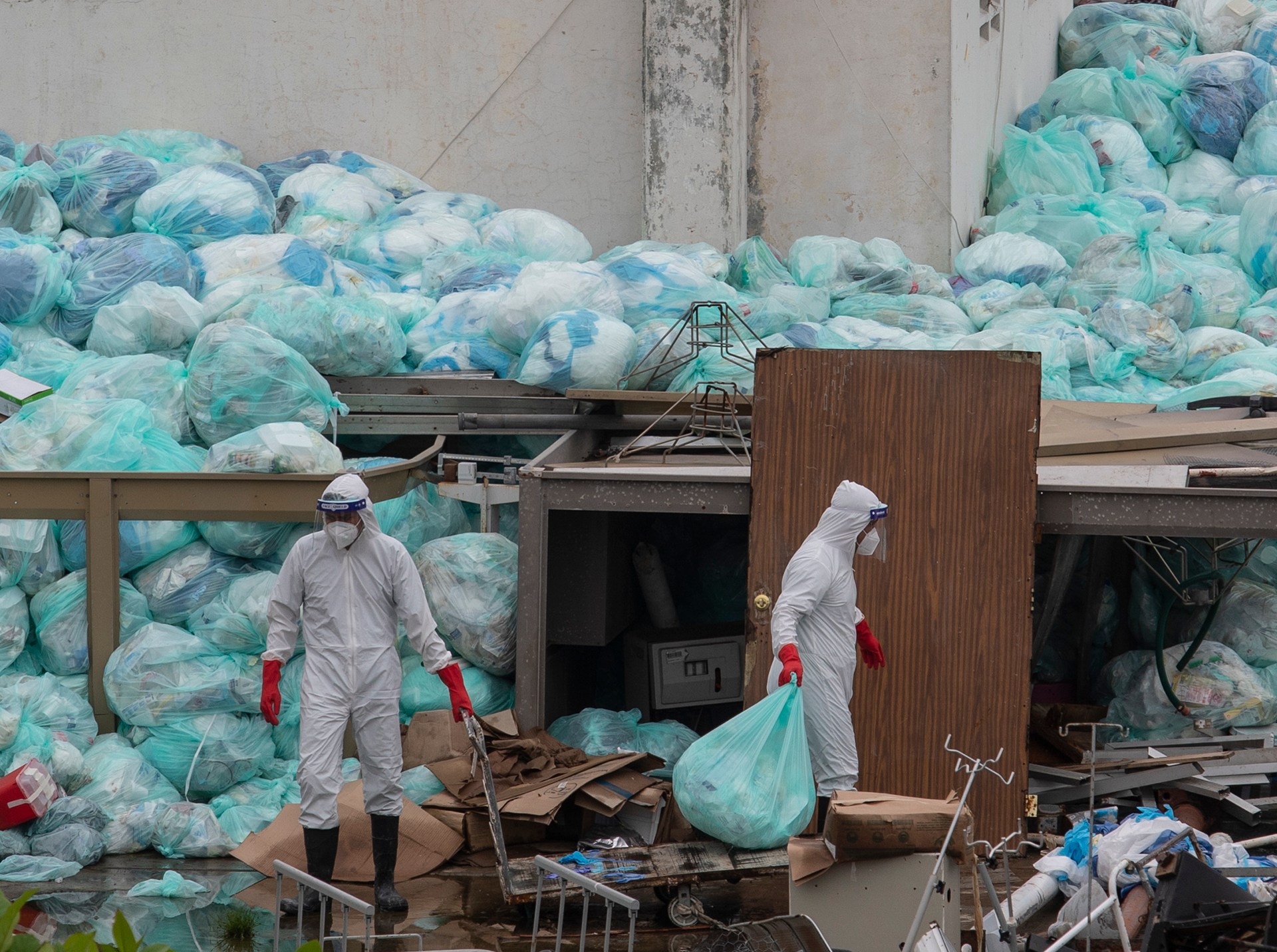Specialist Solutions for Health: Revealing the Medical Waste Removal Service Advantage
Specialist Solutions for Health: Revealing the Medical Waste Removal Service Advantage
Blog Article
Discovering Various Garbage Disposal Options for a Cleaner Environment
In the quest of a cleaner setting, the monitoring of garbage disposal has become a critical centerpiece for lasting growth. With a multitude of garbage disposal alternatives readily available, ranging from conventional garbage dump techniques to ingenious waste-to-energy technologies, the choice of how we handle our waste has far-reaching effects for our world's health. By examining the numerous approaches and strategies used in reusing, composting, incineration, garbage dump monitoring, and waste-to-energy procedures, a deeper understanding of their impacts and performance can be gained. The pursuit for optimum garbage disposal techniques that focus on ecological conservation while satisfying the needs of a growing populace remains a pressing concern in today's world.
Recycling Techniques
Carrying out efficient reusing methods is critical in lessening waste and promoting sustainability in our setting. Recycling involves the procedure of converting waste materials right into recyclable challenge protect against unnecessary disposal. Among one of the most common recycling approaches is material recuperation, where materials like paper, plastic, glass, and metal are gathered, arranged, and processed to produce brand-new products. This process not just conserves natural sources yet also minimizes energy usage and greenhouse gas exhausts associated with creating brand-new materials from square one.
Another crucial recycling technique is composting, which entails breaking down organic waste like food scraps and backyard trimmings right into nutrient-rich dirt. This procedure not just diverts organic waste from land fills but likewise produces a beneficial source for horticulture and farming. Additionally, upcycling is an imaginative recycling method that involves transforming old or discarded materials into products of better or value. By integrating these various reusing methods right into our waste monitoring practices, we can dramatically reduce our ecological impact and relocate towards a much more sustainable future.

Composting Methods
Efficient waste administration techniques, such as reusing approaches, lead the way for a cleaner atmosphere, and currently, shifting the focus to 'Composting Techniques', we explore sustainable means to break down natural waste for environmental advantage. medical waste removal.
Composting is a natural procedure that changes organic waste, like food scraps and yard trimmings, right into a nutrient-rich dirt modification. The trick to successful composting lies in producing the ideal balance of environment-friendly materials, such as vegetables and fruit scraps, and brownish materials, like dried leaves and twigs. These materials break down with the assistance of microbes, damaging down the waste right into important garden compost.
There are various composting strategies readily available to fit different requirements. Traditional backyard composting involves layering organic materials in a bin or heap and consistently transforming the blend to freshen it. Vermicomposting, on the various other hand, utilizes worms to break down natural matter right into compost (click here). For those with restricted room, indoor composting systems give a hassle-free solution. By utilizing composting techniques, we can decrease the amount of waste sent to garbage dumps while developing a useful product for enhancing dirt and sustaining plant development.
Incineration Benefits And Drawbacks
Incineration, as a garbage disposal approach, provides both advantages and drawbacks that merit cautious consideration in the realm of lasting waste administration methods. On the silver lining, incineration can substantially minimize the volume of waste, reducing the need for landfill room and potentially lowering greenhouse gas discharges. Incineration also permits the recovery of power with the generation of electrical energy or warm, adding to resource recovery. The process can be made use of to destroy unsafe compounds, using a risk-free technique for dealing with particular types of waste that might pose risks to public health and the atmosphere if left untreated.
Nonetheless, there are significant downsides to incineration. One major problem is the prospective launch of damaging pollutants into the air, such as dioxins, hefty metals, address and particulate issue, which can have unfavorable results on human health and the atmosphere. In addition, the high initial investment and operational costs of incineration facilities present economic difficulties, making it a much less cost-effective option compared to other waste administration approaches. Careful monitoring and regulation are necessary to minimize these negative effects and optimize the advantages of incineration as component of a detailed waste monitoring approach.
Land Fill Administration Methods
Garbage dumps play a crucial duty in waste monitoring and ecological preservation by offering a containment system for the disposal of solid waste materials. By compacting the waste, the quantity is reduced, permitting for even more waste to be suited over time.
In addition, the implementation of daily cover techniques is essential in minimizing smells, avoiding trash, and minimizing the tourist attraction of insects. Covering the disposed waste at the end of daily helps to contain smells and stop prospective ecological contamination. In addition, the tracking of landfill gas emissions and leachate levels is crucial in making certain that ecological requirements are met which any possible risks to bordering ecological communities are decreased.

Waste-to-Energy Technologies
One of the innovative strategies to throw away monitoring entails using Waste-to-Energy innovations to transform strong waste right into usable power sources. Waste-to-Energy (WtE) technologies encompass a variety of procedures that aim to extract energy from waste materials through thermal, chemical, or biological methods. This conversion process not only minimizes the volume of waste that finishes up in landfills but also creates useful power sources such as electrical power, warm, or biofuels.
Incineration entails burning waste at high temperatures to generate warmth and power. Gasification transforms waste right into a syngas, which can be used for power generation or chemical production.
Implementing Waste-to-Energy modern technologies can assist mitigate ecological problems linked with conventional garbage disposal techniques while concurrently supplying a renewable resource source. Careful factor to consider needs to be given to discharges control and ensuring the sustainability of feedstock materials for these modern technologies to be really advantageous for a cleaner setting.

Final Thought
To conclude, discovering numerous garbage disposal alternatives such as reusing, composting, incineration, landfill monitoring, and waste-to-energy modern technologies is necessary for advertising a cleaner environment - click here. Each method has its very own advantages and obstacles, however by utilizing a mix of these techniques, we can function in the direction of decreasing the quantity of waste that ends up in landfills and ultimately add to a much more lasting future for generations ahead
With a multitude of waste disposal choices offered, ranging from conventional land fill methods to cutting-edge waste-to-energy technologies, the selection of how we manage our waste has significant ramifications for our world's health. medical waste removal.Incineration, as a waste disposal approach, presents both advantages and downsides that warrant careful factor to consider in the realm of sustainable waste management techniques.Landfills play an important role in waste monitoring and environmental conservation by giving a containment system for the disposal of solid waste products. By condensing the waste, the quantity is minimized, allowing for more waste to be accommodated over time
One of the ingenious approaches to squander monitoring includes taking advantage of Waste-to-Energy innovations to transform strong waste into usable energy sources.
Report this page